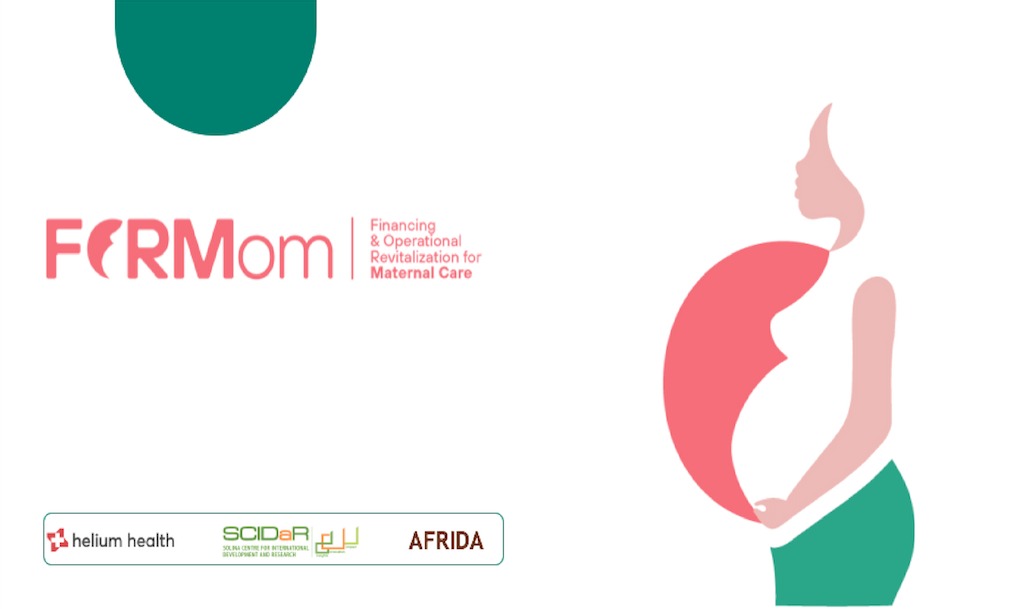By Onyedikachi Ewe
“Because she was a few days overdue, I drove [my wife] to the hospital to be induced. However, on starting labour, she started bleeding, and the drugs they needed to stop this were not in stock, so I went out to buy them. But when she died, nobody told me why.” — Hezekiah.
This story from a key informant interview is one of many told and untold stories of maternal deaths in Nigeria. The burden of maternal mortality continues to be a public health concern as Nigeria’s maternal mortality rate still ranks among the highest in the world at an alarming rate of 512 deaths per 100,000 live births according to the 2018 Nigeria Demographic and Health Survey (2018 NDHS).
The delay in receiving adequate care on arrival at the health facility, which is the third delay on the Three Delays Model, contributes to maternal mortality and morbidity in Nigeria. The Nigeria Near Miss and Maternal Death Survey revealed that issues concerning intra-hospital quality of care and delays in accessing adequate levels of care play a major role in the occurrence of maternal deaths. Pregnant women who made it through the first delay in deciding to seek care at a health facility and the second delay caused by inequalities in accessing maternal health care should not have their chances of maternal survival jeopardised by the poor quality of care provided at these facilities.
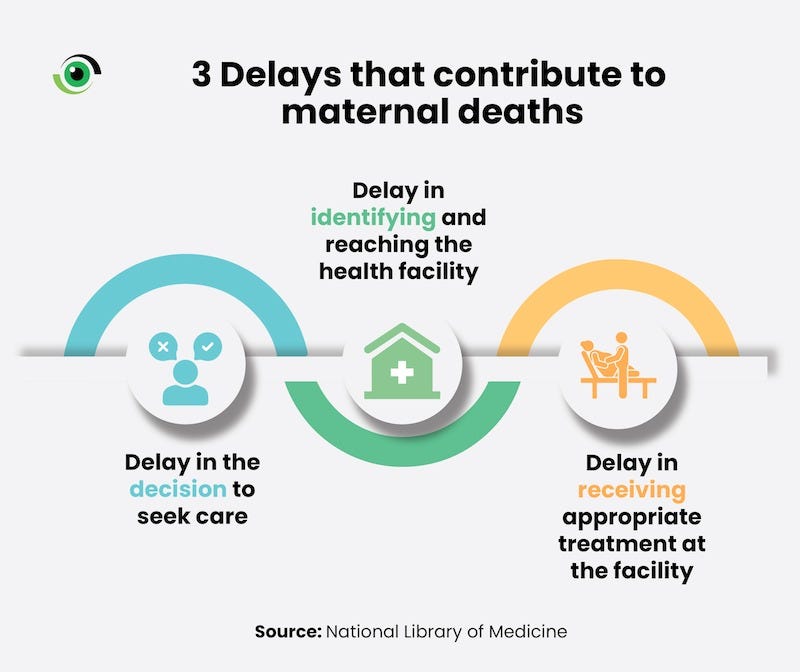
Therefore, designing and implementing programmes and interventions that will equip health facilities to provide prompt and quality maternal health services and address other delays should be prioritised. This will enable improvements in maternal health outcomes and rapid, sustainable gains towards achieving the Sustainable Development Goal (SDG) 3.1 target -reducing the maternal mortality ratio to less than 70 deaths per 100,000 live births.
Innovative healthcare financing solutions for maternal care
Strengthening health systems requires innovative health financing mechanisms to improve access to quality maternal health services for all. Financing and Operational Revitalisation for Maternal Care — FOR M(om) is a maternal health programme with the overall goal of improving the quality of maternal care, reducing maternal mortality and ultimately strengthening systems for safer childbirth in Nigeria. The programme seeks to achieve the desired outcomes by deploying a four-pronged approach to revitalising maternal service delivery and addressing the third delay by:
- Providing financing for facility operations through the HeliumCredit loan facility
- Digitisation of the paper-based health records management system via the deployment of HeliumEMR
- Strengthening the capacity of clinical and administrative staff to improve facility operations and offer quality service delivery
- Creating demand and linking communities to health facilities to access maternal services
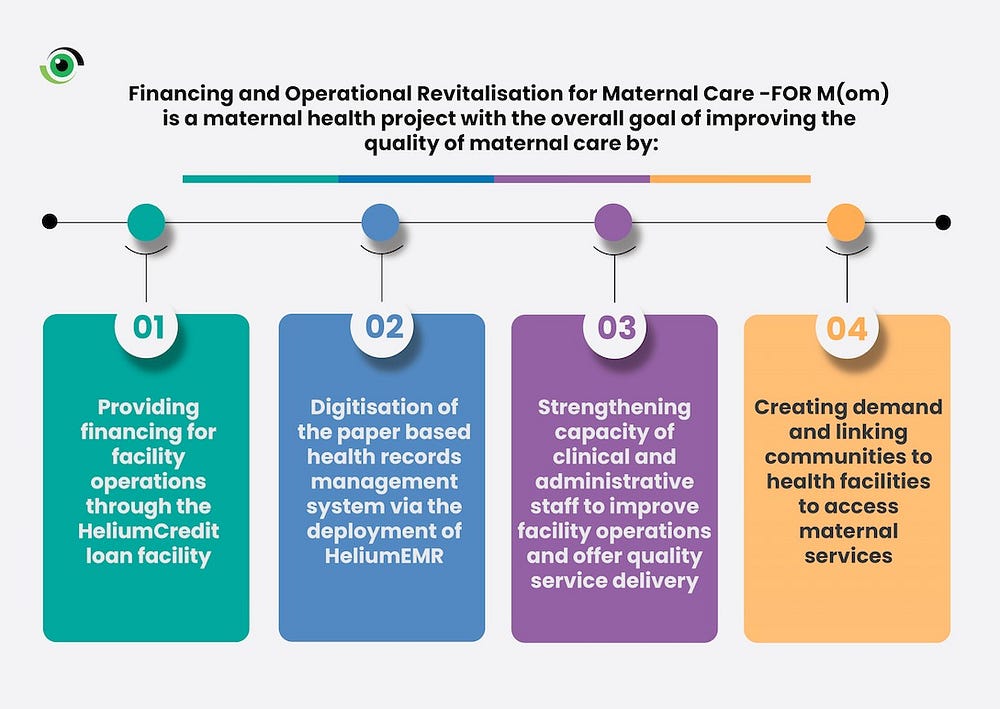
The programme commenced in 2022 and is being implemented in Delta, Kano, and Lagos states in Nigeria by a consortium of Helium Health, Solina Centre for International Development and Research (SCIDaR) and AFRIDA. This support will be implemented across 250 selected health facilities in selected states for a duration of three years. The programme is a Systems Strengthening for Safer Childbirth Initiative and is supported by funding from MSD through MSD for Mothers, the company’s global initiative to create a world where no woman has to die while giving birth.
On the 24th of August 2023, the FOR M(om) programme was officially launched in Lagos to introduce the programme to stakeholders and collaborators formally. The event was well attended by stakeholders from the health sector, including stakeholders from the state Ministry of Health, Lagos State Primary Health Care Board, Health Facilities Monitoring and Accreditation Agency (HEFAMAA), Association of Nigerian Private Medical Practitioners (ANPMP) and medical practitioners from the private sector.
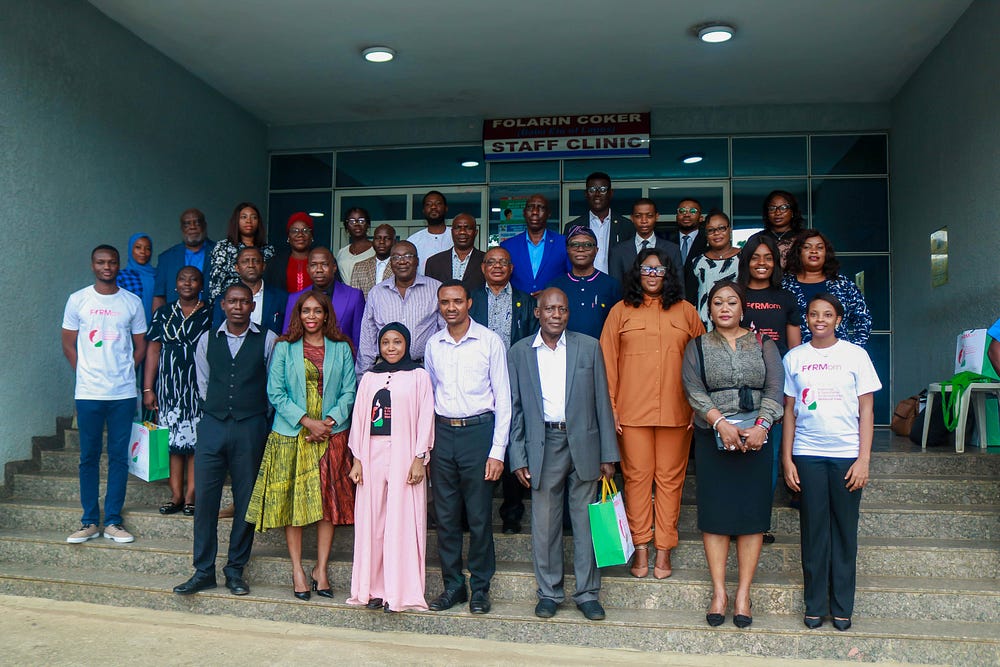
Ending preventable maternal deaths must remain at the top of the global health agenda. Innovative healthcare financing will assist in providing quality healthcare to clients and reduce maternal deaths. The HeliumCredit loan facility for the FOR M(om) programme will provide financing for facility equipment and operations and will support facilities to be better equipped and positioned to provide quality maternal health care. This will help to improve access to quality care and advance the goal of universal health coverage. In her presentation during the event launch, Dr Omobosola Asuni, Head of Public Health, Helium Health spoke on the importance of using the HeliumEMR to digitise all facility records. She noted that it improves the quality of facility-level data reporting and provides visibility into the quality of maternal services, which should, in turn, spur informed decision-making by management to improve operational efficiency and effectiveness at supported facilities.
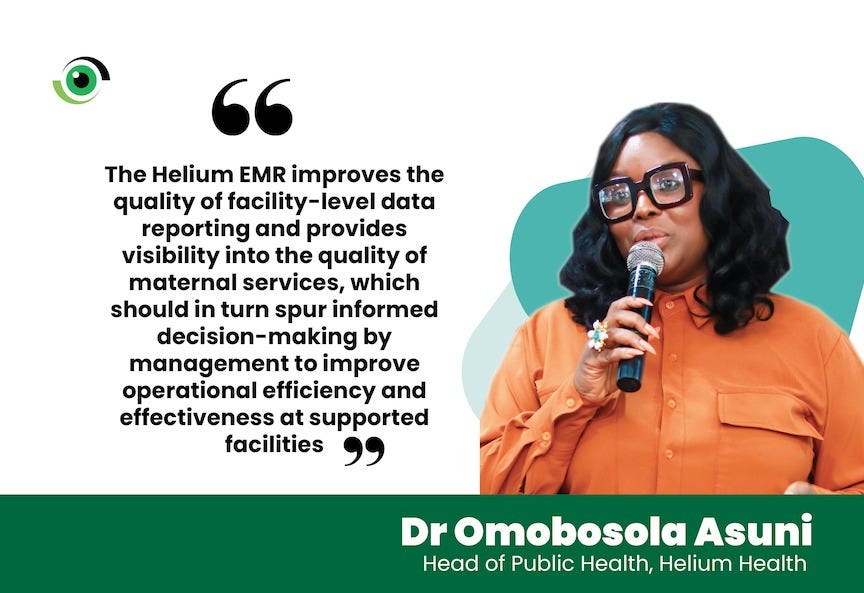
Strengthening human capacity for improved care
On capacity-building of facility staff, Efosa Omoregie, a Manager at SCIDaR, remarked that this component of the programme is a whole-of-system approach where the capacities of both health workers and administrative staff in the facility are built to ensure wider coverage. “We will deploy classroom sessions, on-the-job training, e-learning, leveraging technology and learning exchange which is called peer-to-peer learning to build capacity.” To sustain these learnings, the programme also seeks to provide tools and job aids to providers and engrain quality of care mechanisms to promote continued quality of care and knowledge retention within the facility. Additionally, they aim to create a system where trained facility staff will share these learnings with other members of staff, especially given the rate of health worker attrition.
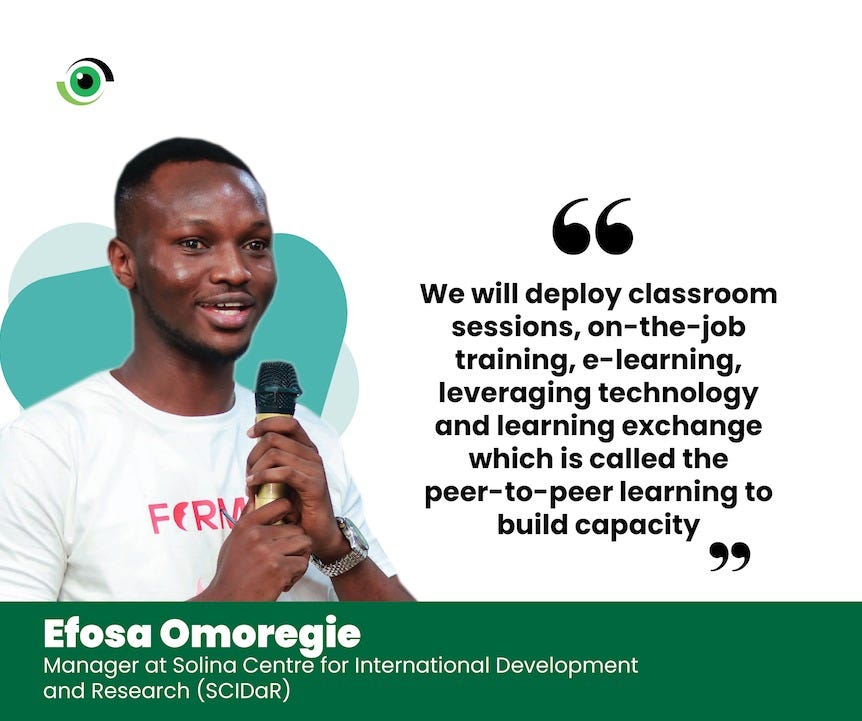
There is also the community engagement component of the programme, where community members are encouraged to seek maternal health care at the supported health facilities. The Project Manager, AFRIDA, Abbas Oluwarotimi Bello, stated that demand-creation is one of the four-pronged approaches of the programme to create demand among target beneficiaries linking them to access care at equipped facilities at the point of care. To drive demand for quality health care, they engage champions, community gatekeepers, and community leaders to mobilise women of childbearing age to access care at supported facilities.
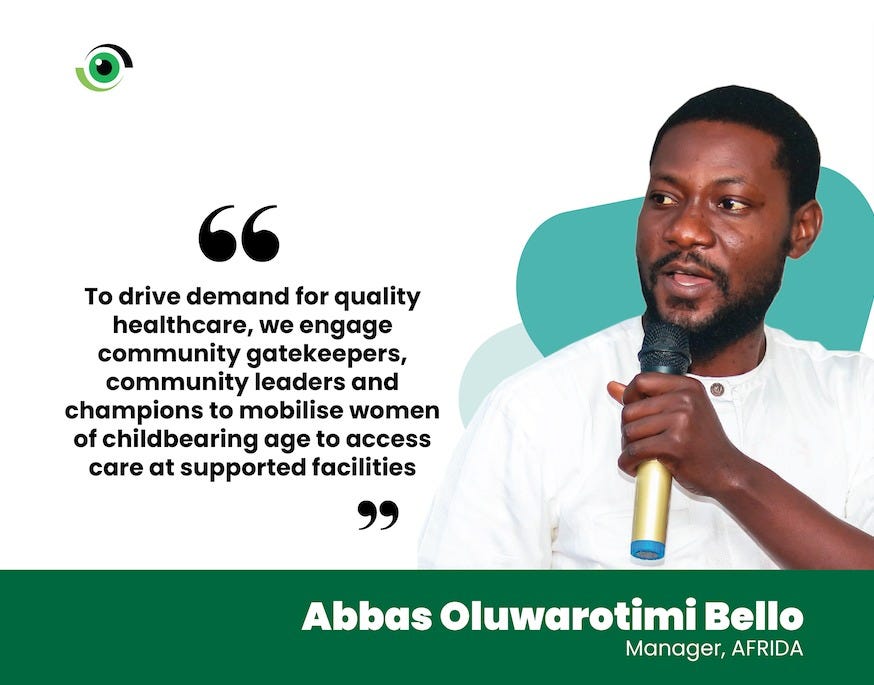
Stakeholders, including Dr Makinde Akinlenmibola, Chairman of the Association of Nigerian Private Medical Practitioners-Lagos State Chapter, believe this programme will improve the health indices of Nigeria. While speaking on the programme’s goals and objectives, he said the programme benefits both the receiver and provider of health care by assisting medical practitioners in accessing healthcare financing that will improve health service delivery and the health indices of the country.
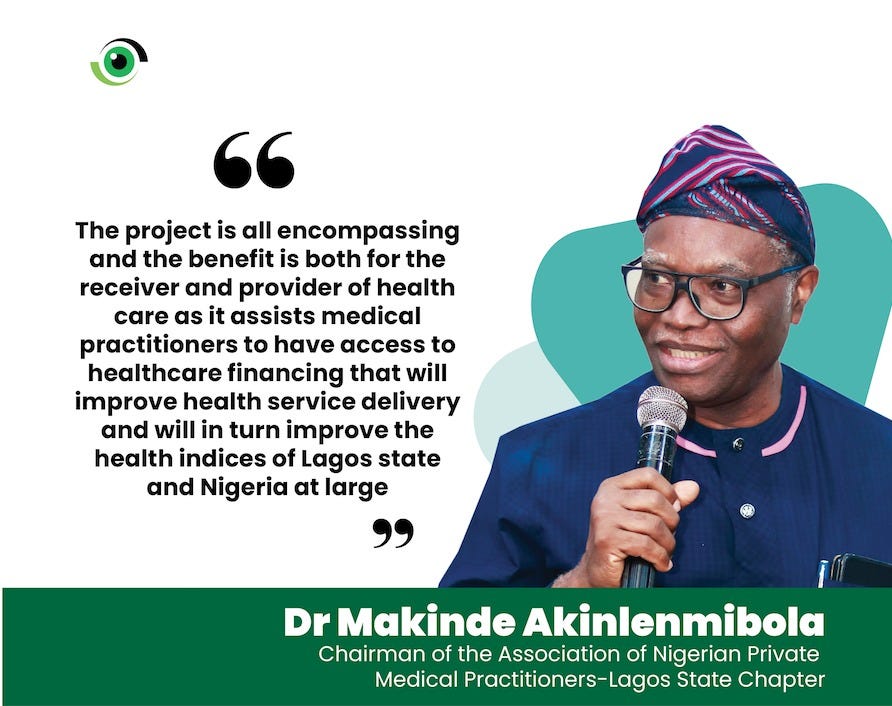
Looking ahead
To make healthcare more accessible to a broader population of women of childbearing age, a comprehensive system-wide approach is recommended. Policymakers should therefore support initiatives and collaborative efforts aimed at strengthening health systems, enhancing service provision and facilitating better experiences for women seeking maternal healthcare services. Urgent policy reforms are required to empower public facilities to participate in this programme, thereby creating wider coverage and ensuring these facilities can both benefit from and deliver high-quality maternal healthcare services. Such reforms are essential for advancing maternal health outcomes in Nigeria.
“This programme is supported by funding from MSD, through MSD for Mothers, the company’s global initiative to help create a world where no woman has to die while giving life. MSD for Mothers is an initiative of Merck & Co., Inc., Rahway, NJ, U.S.A.”


